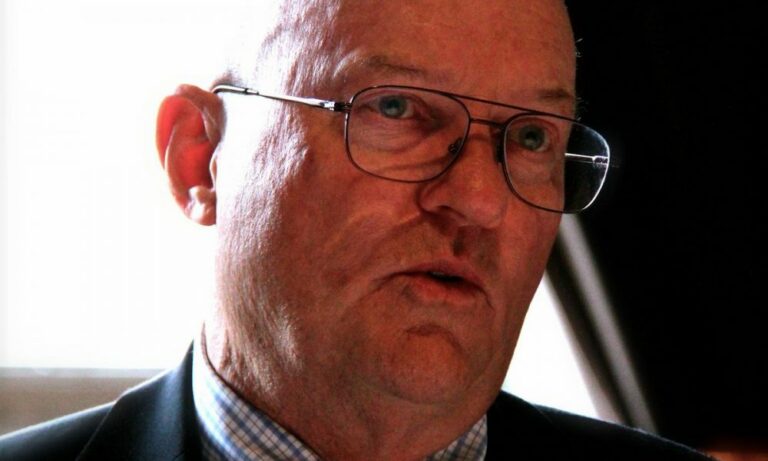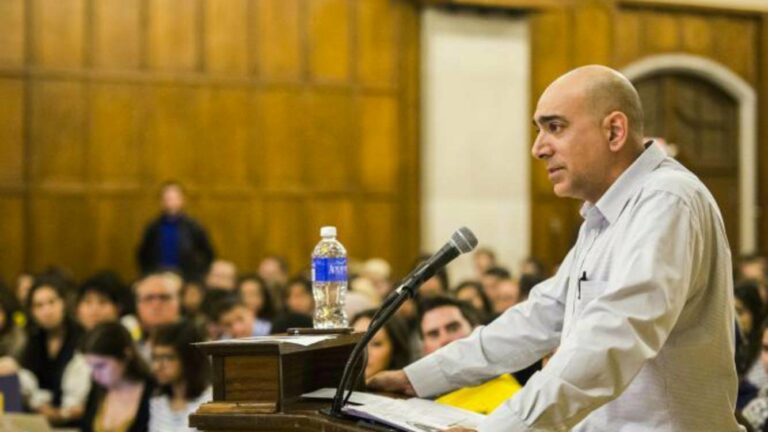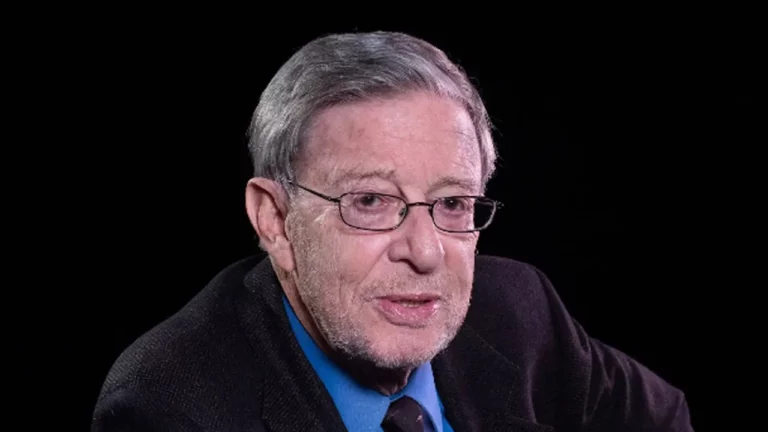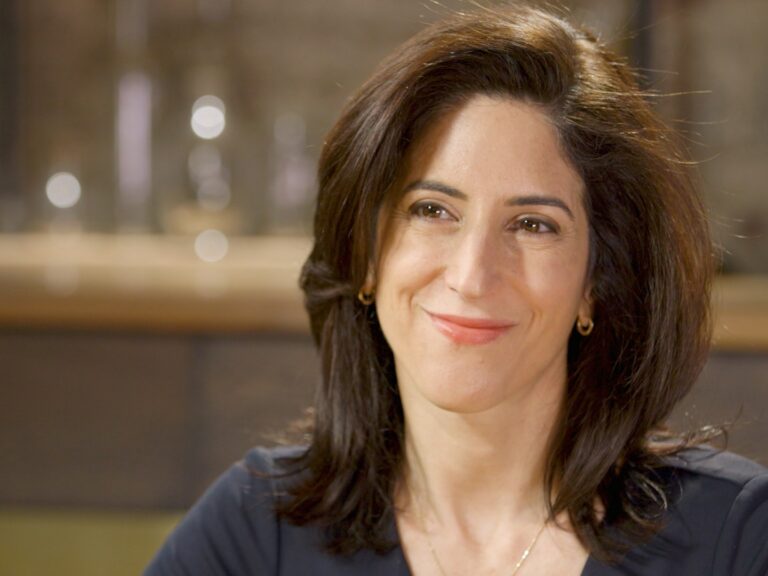This interview was originally published on August 15, 2017. On Reality Asserts Itself with Paul Jay, Troy LaRaviere says growing up in poverty prepared him for a fight to defend public education in Chicago, even when it threatened his own job as a school principal.
Paul Jay: Welcome back to the Real News Network and Reality Asserts Itself. I’m Paul Jay. Joining us in the studio once again is Troy LaRaviere. He’s the president of the Chicago Principal and Administrator Association. He was fired as a principal of Blaine Elementary School after speaking out against Mayor Rahm Emanuel and his handling of the Chicago Public School system. And he’s now exploring a run for mayor himself. Thanks for joining us.
Troy LaRaviere: Thanks for having me.
Paul Jay: The report that you just issued on the underfunding of special needs children by the Chicago Public Schools has an interesting paragraph, which I’m going to read. It’s pretty tough talk. Usually when principals talk and schools talk and teachers talk, they’re not usually so forthright or–what should I word–blunt, I’m not sure is maybe the word. Here-
Troy LaRaviere: Honest is what I like to call it.
Paul Jay: Honest, okay. Here’s what you guys wrote: While we must certainly notice and address the repulsive racial discrimination practiced by CPS, that’s Chicago Public Schools, officials, it’s even more important for us to notice that no group received everything they needed. We must not quarrel amongst ourselves over the scraps this administration throws to our children with one hand, while the other is doling out multimillion-dollar contracts, tax breaks, and interest payments to the self-serving, profit-driven corporate interests they serve. So, as a principal and former teacher, how do you get to be the person who speaks so publicly about this? I would assume in Chicago, schools and most school system, there would be repercussions for someone who talks like this. This is written when you’re head of the Principals Association.
Troy LaRaviere: Right.
Paul Jay: But my understanding, you wrote an op-ed when you were still a principal and the language wasn’t that much different.
Troy LaRaviere: No, it wasn’t. So the question is: How did I get to that point where I could-
Paul Jay: Yeah, why do you stick your neck out?
Troy LaRaviere: Well, I think the three things in my life that pretty much answer that question. One, was why I became a teacher in the first place. I’ve never forgotten why. Another has to do with my mother and how I ended up being a principal in the first place. And the last one is: Are the experiences I had under Rahm Emanuel as a principal that eventually led me to speak out. In terms of the first piece, I almost didn’t go to college when I got out of high school. I thought that wasn’t a thing for me, that I would fail out. I had a girlfriend who forced me to fill out … I’d actually joined the Navy. And when I got out of the Navy, I had a girlfriend who forced me to fill out an application. I got into the University of Illinois. Once I got in, I was even more petrified that I would fail. And she gave me a book, The Autobiography of Malcolm X, and it changed my life. There were two things about it: One, Barack Obama talks about in Dreams for My Father when he says that that was the book that got him as well. That there was something about the way he kept transforming himself and throwing away things that were not necessarily of service to his desire to serve humanity. He believed some good things and some pretty messed up things at some points in his life. He kept throwing away those things that did not serve him well in becoming a better human being. But the thing that got me even more was his intellectual rise. He’s in prison and he can barely write a letter and he begins to go through this process of academic and intellectual transformation by reading through the prison library, joining the prison debate team. That spoke to me. I remember I was motivated after reading that. I eventually went to the University of Illinois. I got straight A’s my first, second, and third semesters. And it was at that third semester, I’m looking at this grade report and I’m thinking: “I almost didn’t come here; I have straight A’s at the University of Illinois, and I almost didn’t come here. What was it about my life in Chicago on the South Side in Bronzeville, in Chatham, in Washington Park, and Englewood that led me to have such a low assessment of my academic and intellectual abilities? What was it about my life in Chicago Public Schools that led to that?” And so I decided I was going to become a teacher ’cause my thought was: “There are kids out there like me who have the same low self-assessment. And that anyone who came through my classroom was not going to leave my classroom and not understand their potential the way I didn’t understand mine.” I never lost that, number one. This is why I’m in education: To help kids realize their potential. There were things going on when I was a principal that were taking away from my ability and the ability of my teachers and the ability of principals across the district to ensure kids could realize their potential.
Paul Jay: You said, Barack Obama also read the Malcolm X book.
Troy LaRaviere: Right.
Paul Jay: So, two men read the Malcolm X book, but Barack Obama’s the one that has Rahm Emanuel as his chief of staff. He kinda goes down a direction, which is mostly, I would say, about his own career. You go down a direction where you not only become a teacher but then you become so outspoken that you actually jeopardize your own career.
Troy LaRaviere: It’s not the Malcolm X piece that is the center of that. It’s this commitment to ensuring kids can realize their potential. That’s the difference. And always being focused on that goal. Never losing sight of that goal. Never getting jaded. Never letting politics get in the way and making me forget why I got into this in the first place.
Paul Jay: But even that, something … Your goal isn’t: I’m going to become this; I’m going to get that. Perhaps there’s some of that, but your primary goal you’re espousing is the issue of education and kids. Where does that get rooted in you? ‘Cause generally speaking, the whole culture’s about what I’m gonna do for myself.
Troy LaRaviere: Well, the primary goal, it’s not even education and kids. Education and kids is one manifestation of a goal of ensuring that people get to realize their God-given potential. Whether you are a two-year-old, a twenty-year-old, or a sixty-year-old, you should have what it takes, you should be able to get what you need from the society to realize the potential you were given that you had at birth. And it’s not just individuals. Communities, we have entire communities in Chicago that are not able to realize their potential as communities because of our city’s failure to invest in them, if that’s making any sense. When I was a school teacher that commitment to making sure people realized their potential expressed itself in a certain way. When I was a principal-
Paul Jay: I’m asking you something else.
Troy LaRaviere: Sure.
Paul Jay: With your abilities, both as a teacher, as a public speaker, there would’ve been a place for you in the Democratic Party machine. Instead, you’re taking on that machine. When you take on Rahm Emanuel, you’re taking on the Democratic Party machine, not just in Chicago but even further abroad. And in fact, during the primary in the presidential election, you come out for Bernie Sanders, which is not an easy, a ticket into the Democratic Party machine, quite the contrary.
Troy LaRaviere: Right.
Paul Jay: So-
Troy LaRaviere: That’s not my goal. That’s not my goal. My goal is to make sure that people realize their potential. I think I’m answering the question. I don’t know if I’m shaping it the right way.
Paul Jay: I guess what I’m getting at is … No, no, you’re answering the question. But I’m saying, what helped form you-
Troy LaRaviere: Got it.
Paul Jay: … that you make such a choice? ‘Cause it ain’t the normal choice.
Troy LaRaviere: Again, so, it’s that and then there’s the story that happened. There’s a story with why I became a teacher. And then there’s a story of what happened after I became one. So, I go to college, I’m successful, I eventually decide I’m going to become a teacher. I-
Paul Jay: Sorry to interrupt again. But you grew up in quite deep poverty, is that right?
Troy LaRaviere: Yes. After my mother divorced my stepfather when I was about 6, we were pretty much homeless, living with her friends. We were never on a street, but we didn’t have a place of our own. There were many instances in which we did not have a place of our own. I could tell stories about that, but I don’t wanna bore folks. But we had it rough.
Paul Jay: You could tell one.
Troy LaRaviere: I remember being in apartments that were not heated. I remember blankets being hung between doorways, and my mother keeping the stove on in the kitchen and her room was right next to the kitchen and the whole house had to be sealed off so that the stove could heat the kitchen and her room, and we would all live in her room. I remember me eating oatmeal for breakfast, oatmeal for lunch, oatmeal for dinner. I remember having to put snow in a bucket in the middle of the winter and bringing that bucket upstairs and putting it by the stove and watching the snow melt. And then taking that water and putting it in the back of the toilet so that we could flush it because we didn’t have running water that month. That’s the environment I came up in. And that’s an environment similar to the environment many of my students have come up in. We lived that way. Once I became … and again, I’ve never lost touch and lost sight of that existence, but also how that existence almost created a situation where I did not live up to my potential; where the society I lived it did not invest enough in the communities in which I lived that would’ve led me to realize it. If it weren’t for that girlfriend who really pushed me, I would’ve never gone to college and become what I became. I just happened to be lucky in terms of the relationship that I built with a young African-American woman, Margaret Brooks, whose father and mother had her going to college from the moment she was conceived, right. I was lucky enough to be in that relationship. She directed that same kinda energy toward me. And I did eventually marry her, by the way.
Paul Jay: I was gonna ask.
Troy LaRaviere: People usually do. And so, I become a teacher. I’m successful as a teacher. I become an assistant principal. I’m successful as an assistant principal. We took over a school in North Lawndale, the West Side of Chicago, mostly African-American school. We tripled the number of students, the percentage of students meeting standards at that school. And then right after that, I decided it was time to become a principal. Before that, every school I’d ever been at was majority black or majority Latino and majority poverty because that’s where I wanted to be. But I got a call from this school, Blaine, and it was nothing like the schools I had been in before. It was nothing like the schools that I got into teaching to be at. But around that time, my mother got sick, and I had a really deep moment with her in the hospital the night she died. Right after that, I get the call from Blaine. I’m driving in to this interview and I realize something, because I’m doubting, I’m going into this interview thinking: “Why am I even … This isn’t why I got into education. Why am I even doing this?” As I’m driving in to the interview, I pass Thorek Hospital, which is the last place I saw my mom alive. And I look forward, and I know I’m going to be the principal at Blaine. I know that I’m supposed to be at this school for a reason now. I don’t know what the reason is, but I know I’m supposed to be at this school because of what I realize. So, I go in. It’s an all-white local school council. In Chicago, you have local school councils, and they decide who the principal’s going to be. They take me through the interview process, and we get to the end of it, and at the end of it there’s this thing called the community forum where everyone’s out and the last two candidates are kind of like in this pseudo debate. And then, the local school council goes into closed session and comes out and tells the audience who the principal’s going to be. So, they go into closed session, they come out, and they do a public vote. It’s seven of them, and a local school council, there’s supposed to be 12. To hire a principal, you have to have a majority of 12. I need a unanimous vote to get this. The guy gets up, he says, “I make a motion that Mr. Troy LaRaviere be given a four-year contract as principal of Blaine Elementary School.” And they vote: yes, yes, yes, yes, yes, yes, yes.
Paul Jay: What year is this?
Troy LaRaviere: This is 2011. And again, my mother had just passed away a couple months before. After they vote, they ask: Do you accept? I said, “I certainly do.” The audience explodes. And this receiving line, like 40 people deep, forms. And then: “Welcome to Blaine. I love what you had to say about kindergarten. Welcome to Blaine.” While all of this is happening, my mind is still on Irving Park Road and what I saw and what I realized in that moment. Because the part that I haven’t told yet is, my mother’s white. My mother, when my oldest brother was conceived in 1962, her mother told her: “You cannot bring a black child into this home. You cannot bring a black child into this neighborhood. You either give it up for adoption or you leave.” And she left. That’s part of what led to that life of poverty I talked about. When I was driving in, what I realized was that 50 years ago, my mother had to leave this community because of the color of her first-born son. And now, 50 years later, another one of her sons is being brought back into this community by an all-white local school council and being given the most important responsibility you can give someone. This has to happen. I’m meant to be here, right. It was like, I didn’t know why. What am I supposed to do here? I had a sense that it was supposed to be something meaningful, but I had no idea how it was going to play itself out. So, I just tried to be a good principal for two years. I wasn’t that outspoken my first two years. I was just as scared, just as quiet as any other CPS principal was under the Emanuel administration. I did my best to raise the achievement. We got three awards from the Emanuel administration. I’m one of only four principals in the city to get one of the top two principal of merit awards three years in a row. We uplifted achievement from 79% meet standards to 89. Black students went from 43% to 79% in just two years. I just focused on doing my job, like every other principal.
Paul Jay: Two years later, you write an op-ed and you hammer Rahm Emanuel.
Troy LaRaviere: And two years later … It was actually three years later. But two years later, they cut budgets. Two years later, they cut budgets across the city. My local school council was looking to me, like: How is this going to affect us? I could’ve glossed over it, like we were supposed to do, or really given them a sense of the impact. I decided to give them a sense of the impact. As a result, they were upset. I told them … They were like: What can we do? I said, “You can’t solve this problem as the Blaine local school council. They’re not gonna hand Blaine $100,000. But if you connected with those West Side local school councils and those South Side local school councils, the African American and Hispanic communities, and pushed for more money in the district as a whole, then Blaine could then benefit from that. They formed a city-wide coalition of local school councils that night. One of them had an email list where all the local school council heads had gotten put on a carbon copy, and not the blind carbon copy. So he used that list to invite them to our school, to form this coalition. That coalition forced almost $10 million out of CPS; ten million more additional dollars. I remember reading a Catalyst article, it’s a local education magazine, that talked about the community that got the most of that $10 million. And this goes back to your question. The community that got the biggest share of that $10 million was North Lawndale. That was the all-black community I had just come from, right. So as principal of Blaine, I realized that I’d done more for North Lawndale, for the community that I had just come from, as principal of Blaine than I ever could’ve done if I’d stayed in North Lawndale; that this is why I’m here.
Paul Jay: ‘Cause the white school had some clout.
Troy LaRaviere: Right. I am in one of the wealthiest communities in Chicago. It is a privileged position. I could’ve just stayed there and enjoyed it and enjoyed the personal fruits from it and climbed the ladder of CPS. Or, I could use that position to benefit the district as a whole. And that’s when I realized, this is why I am here. I’d always known I’m here for a purpose, had no sense of what that purpose was. It was after that experience, and some other things, that gave me the sense: Oh, this is what I’m supposed to do; I have a responsibility here that I have to meet. Then that led me to then write the op-ed that you talked about. That gave me the sense of purpose and courage to say, “I’m here for a reason. I was put here for a reason. I’m going to do what I was put here to do.”
Paul Jay: And then you get fired.
Troy LaRaviere: Three years later.
Paul Jay: After the op-ed.
Troy LaRaviere: Three years after the op-ed they pulled me out of my school.
Paul Jay: Because you continue your activism.
Troy LaRaviere: Right. I ended up … After the op-ed, I joined the Chuy Garcia campaign and actively campaigned for Chuy against Rahm Emanuel. I felt like, and I understood then what I understand now, that the ills of CPS stem from the ills of the mayor’s office. The mayor runs Chicago Public Schools. And that, if we could get someone who cared about the people of Chicago and all the communities of Chicago, then we could solve some of the ills that our school system was afflicted with.
Paul Jay: Okay. Next segment of the interview, we’re gonna talk about Rahm Emanuel’s philosophy of education, what his plan are for the schools, and what Troy would do differently. Please join us for Reality Asserts Itself on the Real News Network.
Never miss another story
Subscribe to theAnalysis.news – Newsletter
“Troy A. LaRaviere is an American school administrator, educator and current President of the Chicago Principals and Administrators Association. Prior to assuming his role as president, LaRaviere served as a Chicago Public Schools principal. He began his teacher career at CPS in 1997.”










